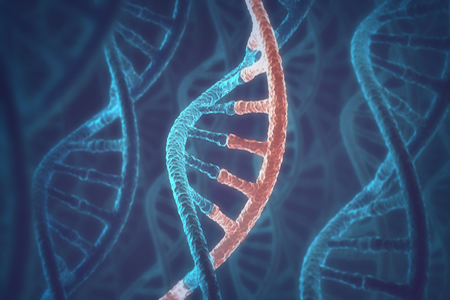Most patients with gastric cancer are treated with chemotherapy, with immunotherapy offered to certain patients; however, not all patients will benefit from these treatments, which are toxic and can cause serious side effects.
Gastric cancer is one of the leading causes of cancer-related death worldwide. Treatment often involves fluoropyrimidine-platinum doublet chemotherapy, although there is only around a 9% improvement in long-term survival with this treatment. What is required is a biomarker that can be used to predict the likely patient response to chemotherapy and immune checkpoint inhibition.
Scientists at the Mayo Clinic Cancer Center in Florida developed a machine learning model – NTriPath – and identified a 32-gene signature that can be used to determine if patients with gastric cancer would get any benefit from chemotherapy or immunotherapy.
The machine learning algorithm integrated genetic data from more than 5,000 patients. “Using unsupervised clustering on expression levels of these 32 genes in tumors from 567 patients, we identify four molecular subtypes that are prognostic for survival, “ explained the researchers. “We then built a support vector machine with linear kernel to generate a risk score that is prognostic for five-year overall survival and validate the risk score using three independent datasets. We also find that the molecular subtypes predict response to adjuvant 5-fluorouracil and platinum therapy after gastrectomy and to immune checkpoint inhibitors in patients with metastatic or recurrent disease.”
While the 32-gene signature still needs prospective validation, the initial findings suggest this approach would be of great benefit in clinical settings and could be used to reliably determine which patients would respond well to chemotherapy or immunotherapy, and which would not, thus preventing the side effects of those therapies. The researchers are currently developing an assay that can be easily deployed in clinical settings and are studying the molecular mechanisms behind immunology resistance that have been made available from the AI and machine learning methods they have developed in their lab.
You can read more about the study in the paper – Development and validation of a prognostic and predictive 32-gene signature for gastric cancer – which was recently published in Nature Communications. DOI: 10.1038/s41467-022-28437-y
